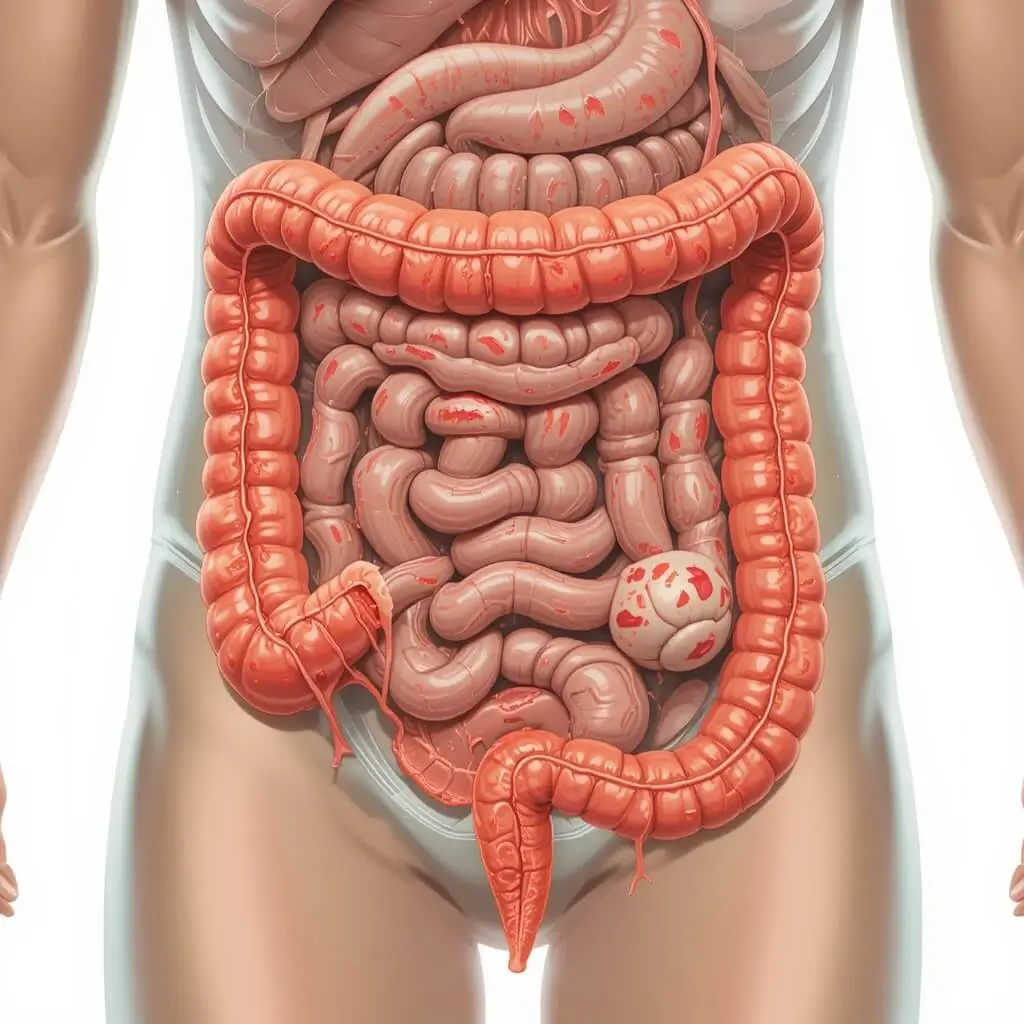Are you dieting but not losing weight? You’re not alone! Many people struggle with stubborn weight loss despite making an effort to eat healthier. The truth is, small diet mistakes can quietly sabotage your progress, leaving you frustrated and wondering, “Why am I not losing weight?”
From underestimating calorie intake to relying on fad diets, common weight loss mistakes can slow down your results. But don’t worry—fixing these errors can get you back on track!
In this post, we’ll uncover five common dieting errors that may be preventing you from reaching your goals—and, more importantly, how to correct them for sustainable weight loss success. Let’s dive in! 🚀
Underestimating Your Caloric Intake
One of the most common diet mistakes that prevents weight loss is miscalculating calorie intake. Many people believe they are eating the right amount, but hidden calories, incorrect portion sizes, and untracked snacks can silently sabotage progress.
💡 Why This Happens:
- Hidden Calories in “Healthy” Foods – Foods like salads, smoothies, and protein bars can be surprisingly high in calories due to dressings, oils, or added sugars.
- Portion Size Errors – Eyeballing portions instead of measuring can lead to consuming more calories than expected. A tablespoon of peanut butter, for example, can easily turn into two or three without realizing it.
- Untracked Snacks & Bites – Mindless snacking, sampling while cooking, or finishing kids’ meals can add up throughout the day.
🎯 How to Fix It:
✅ Use a Food Scale & Measuring Tools – Weigh and measure portions to ensure accuracy, especially for calorie-dense foods like nuts, oils, and grains.
✅ Track Your Intake – Use a food tracking app (like MyFitnessPal or Cronometer) to log meals and snacks. This helps identify patterns and excess calorie intake.
✅ Read Nutrition Labels – Check serving sizes and calorie content, especially for packaged and processed foods.
✅ Be Mindful of Liquid Calories – Sodas, juices, flavored coffees, and alcohol contribute to calorie intake without providing much satiety. Stick to water, herbal teas, or black coffee when possible.
By making small adjustments and tracking food intake more accurately, you can avoid this common weight loss mistake and stay on track toward your goals. 💪
Ignoring the Role of Metabolism and Exercise

Your metabolism plays a key role in weight loss, yet many people overlook its importance while dieting. Simply eating less isn’t always the answer—how your body burns calories and how you exercise can significantly impact your results. If you’re dieting but not losing weight, you may be making critical mistakes that slow down your metabolism instead of boosting it.
💡 Why This Happens:
- Not Eating Enough – Extreme calorie restriction can cause your body to go into “survival mode,” slowing down metabolism to conserve energy.
- Lack of Strength Training – Only doing cardio without incorporating resistance training can lead to muscle loss, which lowers your Basal Metabolic Rate (BMR) (the number of calories you burn at rest).
- Inconsistent Physical Activity – Exercising sporadically or not progressing in workouts can prevent you from burning enough calories.
- Not Adjusting Calories for Weight Loss Progress – As you lose weight, your body requires fewer calories. If you don’t adjust your intake accordingly, weight loss can stall.
🎯 How to Fix It:
✅ Calculate & Monitor Your BMR – Use an online BMR calculator to understand how many calories your body needs daily, and adjust intake as needed.
✅ Incorporate Strength Training – Lifting weights builds muscle, which helps you burn more calories throughout the day—even when at rest. Aim for at least 2-3 strength training sessions per week.
✅ Balance Cardio & Strength Workouts – While cardio is great for heart health and calorie burn, too much can lead to muscle loss. Mix both for optimal results.
✅ Eat Enough Protein – Protein is essential for muscle maintenance and helps boost metabolism. Aim for 0.6-1g of protein per pound of body weight daily.
✅ Stay Active Throughout the Day – Beyond workouts, increase daily movement by walking more, using stairs, or engaging in activities like yoga or stretching.
By supporting your metabolism with proper nutrition and exercise, you can avoid unnecessary plateaus and achieve sustainable weight loss. 🚀
Not Drinking Enough Water
Water plays a crucial role in weight loss, yet many people don’t drink enough throughout the day. Dehydration can slow down metabolism, increase hunger, and lead to water retention, all of which can make it seem like you’re not losing weight despite dieting.
💡 Why This Happens:
- Dehydration Slows Metabolism – Your body needs water to process calories efficiently. Even mild dehydration can reduce calorie burn and make weight loss harder.
- Thirst Is Mistaken for Hunger – Many people confuse thirst with hunger, leading them to overeat when their body actually needs water.
- Water Retention & Bloating – Not drinking enough water can cause your body to hold onto excess water, leading to bloating and making it seem like you’re gaining weight instead of losing it.
- Lack of Hydration Impacts Exercise Performance – Dehydration can lead to fatigue, muscle cramps, and reduced endurance, making workouts less effective.
🎯 How to Fix It:
✅ Follow the “8×8” Rule (or More) – Aim for at least eight 8-ounce glasses of water per day (64 oz total). If you’re active, sweating a lot, or in a hot climate, you may need more.
✅ Start Meals with Water – Drinking a glass of water before meals can help with portion control and prevent overeating due to mistaken hunger cues.
✅ Carry a Water Bottle – Keep a reusable water bottle on hand throughout the day as a reminder to sip frequently.
✅ Eat Hydrating Foods – Include water-rich foods like cucumbers, watermelon, oranges, and leafy greens in your diet to stay hydrated.
✅ Limit Sugary & Caffeinated Drinks – Soda, sugary juices, and excessive caffeine can dehydrate you rather than hydrate. Stick to plain water, herbal teas, or infused water for variety.
By making hydration a priority, you’ll support your metabolism, reduce unnecessary cravings, and improve overall weight loss results! 💧🔥
Poor Sleep and High Stress Levels
If you’re dieting but not losing weight, your sleep and stress levels could be working against you. Lack of sleep and chronic stress can disrupt hormones that regulate hunger, metabolism, and fat storage, making weight loss more difficult—even if your diet and exercise are on point.
💡 Why This Happens:
- Hormonal Imbalance Disrupts Hunger & Appetite – Sleep deprivation increases ghrelin (hunger hormone) and decreases leptin (fullness hormone), leading to more cravings and overeating.
- Stress Increases Cortisol Levels – Chronic stress causes high cortisol levels, which promotes fat storage (especially in the belly area) and increases cravings for sugary, high-calorie foods.
- Lack of Sleep Slows Metabolism – When you’re sleep-deprived, your body becomes less efficient at burning calories, making it harder to lose weight.
- Poor Sleep Reduces Workout Performance – Feeling fatigued leads to less motivation and lower energy, resulting in fewer calories burned during exercise.
🎯 How to Fix It:
✅ Aim for 7-9 Hours of Quality Sleep – Stick to a consistent bedtime routine and create a relaxing environment to improve sleep quality.
✅ Manage Stress Through Relaxation Techniques – Try meditation, yoga, deep breathing, or journaling to reduce daily stress levels.
✅ Limit Late-Night Eating – Eating too close to bedtime can disrupt sleep and digestion, leading to weight gain over time.
✅ Reduce Caffeine & Screen Time Before Bed – Caffeine and blue light from screens can interfere with melatonin production, making it harder to fall asleep.
✅ Incorporate Light Physical Activity for Stress Relief – Activities like walking, stretching, or gentle yoga can help lower cortisol levels and improve sleep.
By prioritizing rest and stress management, you’ll support a healthier metabolism, control cravings, and make weight loss easier and more sustainable. 😴✨
Relying on Fad Diets Instead of Sustainable Eating
One of the biggest reasons people struggle with weight loss is falling for fad diets that promise quick results but fail to deliver long-term success. While extreme diets might lead to temporary weight loss, they often result in yo-yo dieting, metabolic slowdown, and unhealthy eating habits.
💡 Why This Happens:
- Fad Diets Are Too Restrictive – Diets that eliminate entire food groups (like ultra-low-carb or fat-free diets) can be hard to sustain and lead to nutrient deficiencies.
- Crash Dieting Slows Metabolism – Severely cutting calories forces your body into starvation mode, making it burn fewer calories and hold onto fat.
- Extreme Restrictions Lead to Binge Eating – Cutting out favorite foods completely can trigger intense cravings and uncontrollable binges, leading to weight regain.
- Processed “Diet Foods” Are Misleading – Many “low-fat” or “sugar-free” products contain artificial sweeteners, hidden sugars, and unhealthy additives, which can increase hunger and sabotage weight loss.
🎯 How to Fix It:
✅ Focus on Whole, Nutrient-Dense Foods – Eat a balanced diet rich in lean proteins, healthy fats, fiber, and complex carbs to support long-term weight loss.
✅ Adopt a Sustainable Eating Pattern – Instead of extreme restrictions, follow moderation-based diets like the Mediterranean diet or balanced meal planning.
✅ Follow the 80/20 Rule – Eat nutritious meals 80% of the time, while allowing treats in moderation to prevent binge eating.
✅ Ditch the “Quick Fix” Mindset – Weight loss should be gradual and sustainable. Aim for 1-2 pounds per week through consistent, healthy habits.
✅ Prioritize Healthy, Home-Cooked Meals – Cooking at home gives you control over ingredients and portions, reducing reliance on processed “diet” foods.
By shifting away from fad diets and adopting a balanced, sustainable eating approach, you’ll achieve lasting weight loss without feeling deprived! 🍎🥑🥗
Conclusion
Losing weight isn’t just about cutting calories or exercising more—it’s about understanding the small mistakes that might be holding you back. If you’ve been dieting but not losing weight, chances are one (or more) of these common diet mistakes is preventing you from reaching your goals.
🔑 Key Takeaways:
✔ Track Your Calories Accurately – Be mindful of hidden calories, portion sizes, and untracked snacks.
✔ Support Your Metabolism – Incorporate strength training, balanced workouts, and protein-rich foods to keep your metabolism active.
✔ Stay Hydrated – Drink enough water to prevent overeating and keep your body functioning optimally.
✔ Prioritize Sleep & Manage Stress – Poor sleep and high cortisol levels can disrupt hunger hormones and slow fat loss.
✔ Choose Sustainable Eating Over Fad Diets – Focus on long-term, balanced nutrition instead of restrictive diets that lead to yo-yo weight gain.
By identifying and correcting these mistakes, you can break through weight loss plateaus and create a sustainable, healthy lifestyle that works for you.
👉 Take Action: Start by making one small change today—whether it’s tracking your meals, drinking more water, or prioritizing sleep—and see how it impacts your progress! Which mistake do you think has been affecting your weight loss the most? Share your thoughts in the comments! 💬👇
Some sources
WebMD – 10 Diet Mistakes and How to Avoid Them
https://www.webmd.com/diet/ss/slideshow-diet-mistakes
Harvard Health – Why Fad Diets Don’t Work
https://www.health.harvard.edu/staying-healthy/why-fad-diets-dont-work
Mayo Clinic – Weight Loss Mistakes and How to Fix Them
https://www.mayoclinic.org/healthy-lifestyle/weight-loss/in-depth/weight-loss/art-20047752
U.S. News – 7 Diet Mistakes That Sabotage Weight Loss
https://health.usnews.com/health-news/health-wellness/slideshows/7-diet-mistakes-sabotaging-your-weight-loss
MedicineNet – 16 Common Mistakes When Trying to Lose Weight
https://www.medicinenet.com/common_mistakes_when_trying_to_lose_weight/article.htm


